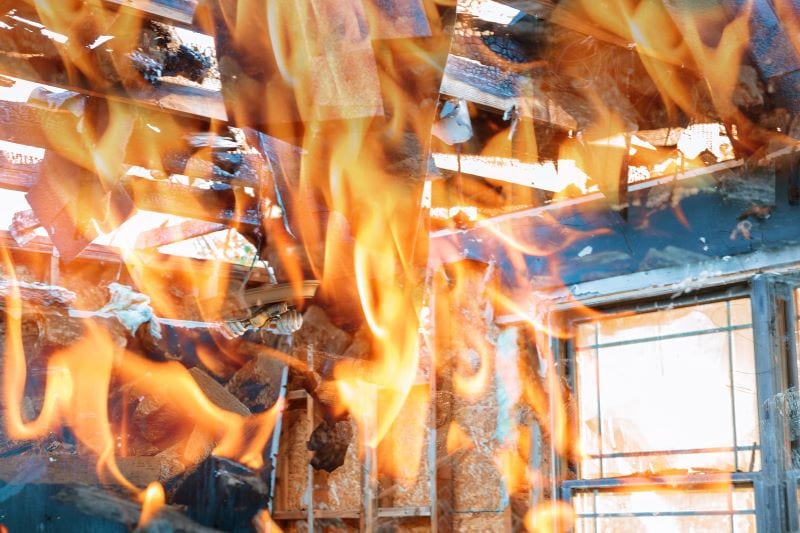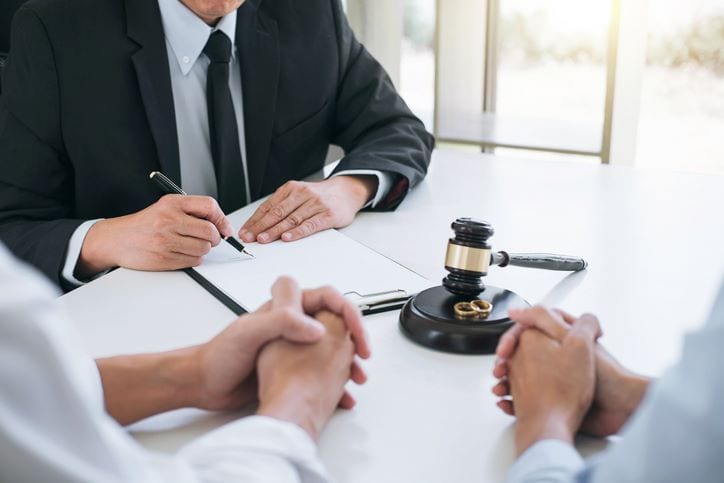
Imagine waking up to the sound of sirens, only to realize that your neighbor’s house is engulfed in flames. As you watch in horror, you begin to worry about the safety of your own home and belongings. But what happens if the neighbor’s home catches fire and spreads, causing damage to your property? Can you hold your neighbor accountable for the devastation? These are questions that many homeowners face when dealing with the aftermath of a neighbor’s house fire.
In this comprehensive guide, we’ll explore the complex legal issues surrounding neighborly disputes over fire damage. From understanding liability to seeking compensation, we’ll provide you with the information you need to navigate this challenging situation.
Common Reasons a Neighbor’s House Can Catch Fire
Before delving into the legal aspects of fire damage, it’s essential to understand the common causes of house fires. While some fires are purely accidental, others may be the result of negligence or even intentional acts. Here are some of the most frequent reasons a neighbor’s house might catch fire:
Electrical Wiring Issues: Faulty wiring or overloaded circuits can pose a significant fire hazard.
Careless Smoking: Discarded cigarettes or smoking materials can easily ignite flammable materials, leading to a house fire.
Incendiary Materials: Improper storage or use of flammable substances such as gasoline or propane can increase the risk of fire.
Cooking Accidents: Unattended stoves or kitchen appliances can spark fires, especially when cooking oils or grease are involved.
Faulty Appliances: Malfunctioning appliances, such as space heaters or dryers, can cause fires if not properly maintained.
Natural Disasters: Events like wildfires or lightning strikes can also result in house fires, spreading rapidly and causing extensive damage.
Impact of a Neighbor’s House Fire on Your Property
When a neighbor’s house catches fire, the consequences can extend far beyond the immediate vicinity. The spread of flames, heat, and smoke can cause significant damage to neighboring properties, including:
Structural Damage: Fire can weaken the structural integrity of buildings, compromising their safety and stability.
Smoke Damage: Smoke can permeate walls, ceilings, and personal belongings, leaving behind stubborn odors and residue.
Water Damage: Firefighters may use large amounts of water to extinguish flames, leading to water damage and mold growth.
Loss of Personal Belongings: Valuables inside neighboring homes may be damaged or destroyed by fire, smoke, or water.
Who Is Liable or Who Pays When a Neighbor’s Fire Spreads to Your Home?
Determining liability in cases of fire damage can be complex, as multiple parties may be responsible for the spread of the fire. In addition to your neighbor, other liable parties may include:
Property Owner: If the neighbor rents or leases the property where the fire originated, the property owner may also be held liable for damages if they were negligent in maintaining the premises or addressing known fire hazards.
Homeowners Association (HOA): In planned communities or condominium complexes with HOA regulations, the HOA may bear responsibility for ensuring fire safety measures are in place and enforcing compliance among residents.
Contractors or Maintenance Companies: If the fire was caused by faulty electrical wiring, appliance installation, or other maintenance-related issues, the contractors or maintenance companies responsible for the work may be liable for damages.
Utility Companies: In cases where the fire was sparked by a utility-related issue, such as a gas leak or electrical malfunction, the utility company responsible for the service may be held accountable for the damages.
Government Entities: If the fire resulted from negligence on the part of government agencies responsible for fire prevention and safety regulations, such as failure to maintain public lands or enforce building codes, they may also be liable for damages.
When a Neighbor May Be to Blame for a Fire:
Here are some scenarios in which a neighbor may be held responsible:
Negligent Behavior: If your neighbor’s careless actions, like leaving a lit cigarette unattended or neglecting electrical maintenance, lead to a fire, they may be held responsible.
Intentional Acts: Evidence of deliberate arson or reckless behavior by your neighbor can make them legally accountable for the fire and resulting damages.
Violation of Building Codes: Failure to adhere to building codes, such as improper storage of flammable materials, can lead to liability if it contributes to a fire.
Unsafe Property Conditions: Neglecting property maintenance, like faulty wiring or hazardous storage, may result in liability if it causes a fire.
Failure to Respond Appropriately: If your neighbor fails to take reasonable steps to address a fire or prevent its spread, they may be considered negligent and held responsible for damages.
When a Neighbor May Not Be to Blame for a Fire:
While neighbors can be held accountable for fire damage in many cases, there are exceptions where they may not be liable:
Accidental Fires: Fires caused by genuine accidents, despite reasonable precautions, may absolve the neighbor of liability.
Natural Causes: Fires resulting from acts of nature, like lightning strikes or wildfires, typically don’t attribute blame to any individual.
Unforeseeable Events: Fires stemming from unforeseeable circumstances, such as appliance malfunctions, may not implicate the neighbor.
No Evidence of Negligence: Lack of clear evidence of negligence or wrongdoing on the neighbor’s part can prevent liability.
Prompt and Proper Response: If the neighbor promptly responds to the fire and takes reasonable steps to mitigate damage, they may not be considered negligent.
Can I Sue My Neighbor for Fire Damage?
Yes, you can sue your neighbor for fire damage under certain circumstances, particularly if their actions or negligence directly contributed to the fire. However, initiating a lawsuit should be a last resort after exploring other avenues for resolution.
To sue your neighbor for fire damage, you’ll typically need to demonstrate the following elements:
Duty of Care: Your neighbor had a duty to exercise reasonable care to prevent foreseeable harm to others, including you and your property.
Breach of Duty: Your neighbor failed to fulfill their duty of care by acting negligently or recklessly, thereby breaching their legal obligation.
Causation: The neighbor’s breach of duty directly caused the fire that resulted in damage to your property.
Damages: You suffered actual damages, such as property damage, personal injury, or financial losses, as a result of the fire.
How Can You Sue a Liable Party for Fire Damage?
If you decide to sue a negligent party for fire damage, it’s essential to follow the proper legal procedures to maximize your chances of success. Here are some steps to consider:
Consult with an Attorney: Seek guidance from a knowledgeable attorney who can assess your case and advise you on the best course of action.
Gather Evidence: Collect any relevant evidence to support your claim, such as photographs, witness statements, and documentation of the damages.
File a Lawsuit: Work with your attorney to file a lawsuit against a negligent party, outlining the details of the fire and the damages incurred.
Negotiate Settlement: In some cases, it may be possible to reach a settlement with a negligent party or own homeowners insurance company before going to trial. Your attorney can help facilitate these negotiations.
Litigation Process: If a settlement cannot be reached, your case may proceed to trial, where both parties will present their arguments and evidence before a judge or jury.
Seeking Compensation for Damages
In cases of fire damage caused by a neighbor, seeking compensation for your losses is crucial to rebuilding and recovering from the disaster. Depending on the circumstances, compensation may cover:
Property Damage: Repairing or rebuilding damaged structures, including walls, roofs, and other building components.
Personal Belongings: Replacing or restoring items that were damaged or destroyed in the fire, such as furniture, electronics, and clothing.
Additional Expenses: Covering costs associated with temporary housing, relocation, and other unforeseen expenses incurred as a result of the fire.
Will Insurance Cover Damage Caused by Your Neighbor’s House Fire?
Whether insurance will cover damage caused by a neighbor’s house fire depends on the specifics of your homeowners insurance policy and the circumstances surrounding the fire. Here are some key points to consider:
Your Insurance Coverage: Review your homeowners insurance policies to understand what types of damages are covered and any exclusions that may apply.
Neighbor’s Insurance Coverage: If your neighbor is found liable for the fire, their homeowner’s insurance policy may also provide coverage for your damages.
Subrogation: In some cases, your insurance company may pursue subrogation against your neighbor’s insurance company to recover the costs of the damages.
How an Attorney Can Assist You in Fire Damage Cases
In the aftermath of a neighbor’s house fire damaging your property, seeking legal assistance is paramount to ensure you receive fair compensation and navigate the complexities of the situation effectively.
Legal Guaidence: Attorneys specializing in property law offer essential legal insights, understanding relevant regulations and assessing the viability of your case.
Case Evaluation: Lawyers evaluate the merits of your situation, examining evidence and determining potential legal pathways for pursuing compensation.
Evidence Collection:: Attorneys assist in collecting crucial evidence, such as witness statements and reports, ensuring all pertinent information is available for your case.
Legal Strategy: Based on their experience, lawyers devise a tailored legal strategy, advising on negotiation, litigation, or alternative dispute resolution methods.
Negotiation: Attorneys represent your interests during settlement talks, advocating for fair compensation and striving for a resolution without litigation.
Litigation Representation: If negotiations fail, attorneys navigate the litigation process, handling legal proceedings and advocating before the court on your behalf.
Damage Assessment: Lawyers help quantify damages, including property loss and emotional distress, ensuring all losses are properly documented and accounted for.
Insurance Issues: Attorneys manage communication with insurance companies, ensuring your rights are protected and maximizing coverage under your policy.

Discover Your Path to Justice with BLG: Let Us Fight for Your Fire Damage Compensation
Dealing with fire damage caused by a neighbor can be a daunting and stressful experience. However, understanding your rights and options under the law can empower you to seek justice and compensation for your losses. By consulting with an experienced attorney and navigating the legal process diligently, you can hold your neighbor accountable for their actions and work towards rebuilding and recovering from the devastation of the fire.
If you find yourself in such a situation, don’t hesitate to reach out to BLG. Our experienced attorneys are here to help you steer the complexities of property law and pursue the compensation you deserve. Whether you’re seeking to hold your neighbor accountable for their negligence or need assistance with insurance claims, we’re committed to advocating for your rights and interests.
Contact us today for a free consultation.




